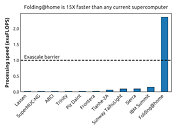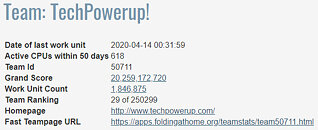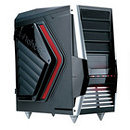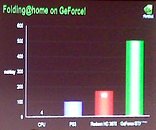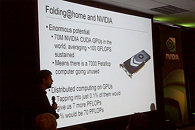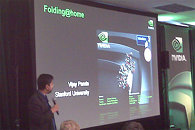Folding@Home Surpasses 2.4 Exaflops - Faster Than Top 500 Supercomputers In The World
In our last report Folding@Home was at 1.5 Exaflops and had eclipsed the theoretical El Capitan Supercomputer not due to come online until 2023. Folding@Home has gained another 900petaFLOPS and is now not only 15x more powerful than the next most powerful supercomputer, IBM's Summit but more powerful than the next 500 supercomputers combined. Researchers have been scrambling to create more simulations to run as computational performance growth has exceeded all expectations.
The TechPowerup! team is currently ranked #29 with 618 active Folders. If you want to donate some spare cycles you can download the client over at the Folding@Home web page and download the installer for your client. When setting up the client make sure to enter your TeamID as 50711 to help us rise the ladder to world domination. This is an easy way to contribute to the largest computational medical cure research project ever completing vital research on COVID-19 and various other diseases.
The TechPowerup! team is currently ranked #29 with 618 active Folders. If you want to donate some spare cycles you can download the client over at the Folding@Home web page and download the installer for your client. When setting up the client make sure to enter your TeamID as 50711 to help us rise the ladder to world domination. This is an easy way to contribute to the largest computational medical cure research project ever completing vital research on COVID-19 and various other diseases.
